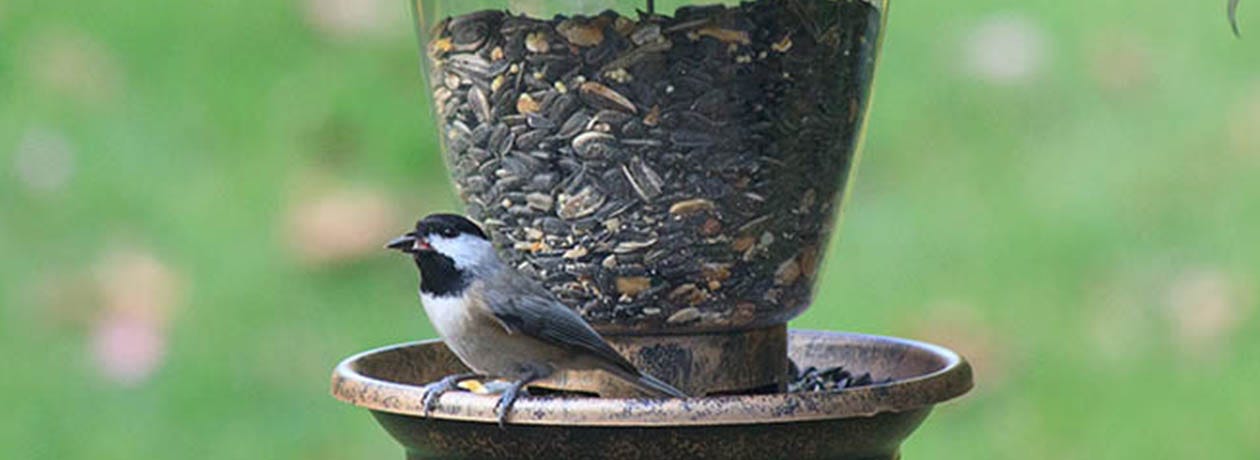Top 5 Things to Consider When Buying a Bird Feeder

When your customers come in asking about the best bird feeder for them, you will likely have a lot of options in your store. The bird feeder market is saturated with product features, designs and promotions for varying types of birds and utility purposes, so it can become overwhelming.
Tell your customers to follow these five tips when shopping for bird feeders:
1. Feed Birds Long-Term
Settling for the cheaper feeder will leave your customers frustrated since they will most likely end up replacing it. Bird feeding is not just a hobby, it’s a long-term investment. Plus, bird feeders need to be able to endure freezing temperatures, sun and rain, and numerous backyard pests, including squirrels, raccoons and chipmunks. The best bet is to spend a bit more upfront for a feeder made with quality materials and backed by a product guarantee like those from Perky-Pet®.
2. Go Big With Bird Feeders
This is where convenience is on the customer’s side. Having a big feeder that can hold plenty of seed means fewer trips to refill it. Birds typically eat about half their weight in seeds per day. Upgrading to a feeder that holds 2 lb of seed or more can mean that you feed more birds over a longer period of time.
3. Use Common Sense When Buying Bird Feeders
Advise your customers to choose feeders with no sharp edges or points; the design should allow birds to perch away from the food, which stops it from becoming soiled, but still allows easy access to the seed. Setting up more than one feeder and allowing ample space between them can also avoid fights between the birds.
4. Squirrels — Public Enemy No. 1
Don’t suggest to your customers that they let nature “run its course” when it comes to bird feeding. If they do, squirrels will become bullies to your customers birds. This not only limits bird watching and bird feeding time, but squirrels can actually destroy feeders, too. Instead, point your customers to the squirrel-resistant feeders available from Perky-Pet®. Further, advise them to avoid tray feeders that pose an open invitation for squirrels and chipmunks. Other ways to keep sneaky squirrels off bird feeders is by pole-mounting the feeder, adding a baffle and choosing a better location that makes it difficult for squirrels to access.
5. Be Ready to Clean Bird Feeders
Birds are great to watch, but they can also be more than a bit messy. Birdseed can drop to the ground and the feeder itself can get grungy. In some cases, bird feeders can even transmit a disease from one bird to another. With that in mind, tell your customers to consider the cleaning procedures that may be required for particular bird feeders. In general, feeders should be cleaned about once every two weeks through the winter, so having a feeder that breaks down quickly for cleaning is a must.
Of course there are other helpful considerations about feeding birds, including the seed to be used, the time of year and the birds present in a particular region. These five tips, however, cover the basics of any bird lover. With these tips in mind, your customers will have the knowledge they need to make the best choice for their bird feeder purchase.
